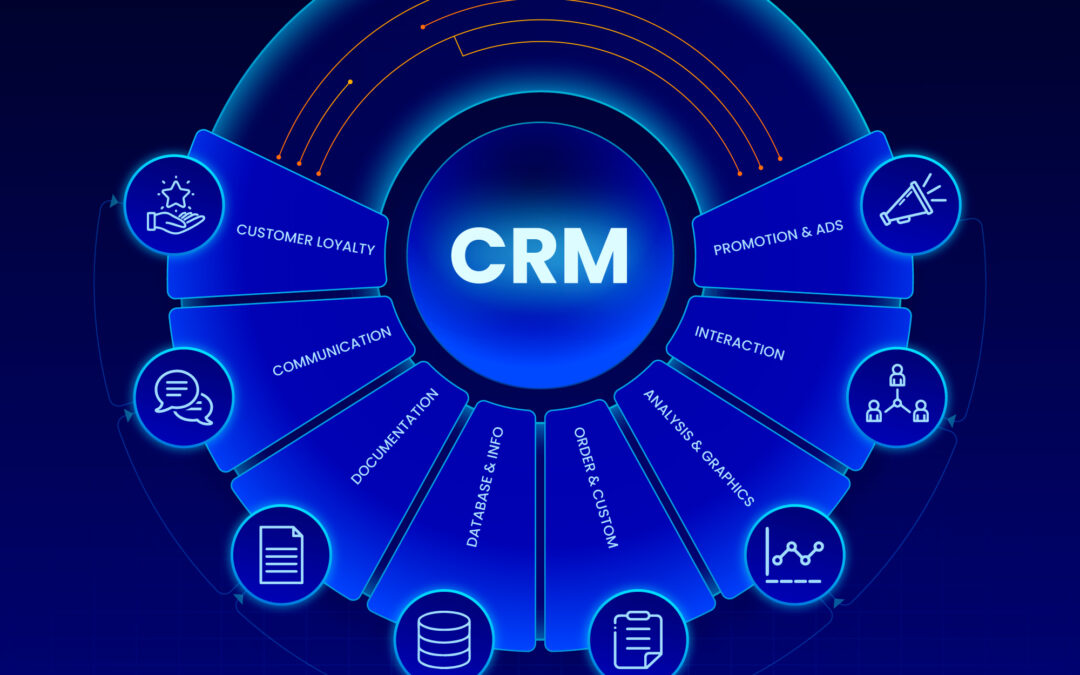In the ever-evolving world of business-to-business (B2B) sales, efficient lead management is crucial for generating revenue and building lasting client relationships. The adoption of Customer Relationship Management (CRM) software has transformed how businesses approach this task, and recent advances in artificial intelligence (AI) are further revolutionizing CRM capabilities. This blog explores how integrating CRM systems with AI initiatives can significantly enhance B2B lead management, streamline sales processes, and improve conversion rates.
What Is B2B Lead Management?
B2B lead management refers to the structured process of identifying, attracting, nurturing, and converting business prospects into clients. It involves several stages:
- Lead Generation: Capturing potential leads through digital marketing, events, networking, referrals, and other channels.
- Lead Segmentation: Categorizing leads based on criteria such as industry, size, geography, and behavior.
- Lead Qualification: Determining which leads are most likely to convert using metrics like budget, authority, need, and timeline (BANT).
- Lead Nurturing: Building relationships with potential customers through emails, content marketing, and personalized interactions.
- Lead Conversion: Transforming nurtured leads into paying clients through timely sales actions and closing strategies.
Each stage requires careful coordination and data management—a task made exponentially easier with CRM software.
The Role of CRM in B2B Lead Management
CRM systems are designed to store, organize, and analyze customer information. For B2B lead management, this means having a centralized platform that houses:
- Contact information
- Communication history
- Sales activities
- Lead scores
- Notes and documents
A well-implemented CRM can:
- Track and automate follow-ups
- Help sales teams prioritize high-value leads
- Maintain consistency in messaging and outreach
- Provide data-driven insights for decision-making
Why AI Matters in CRM: The Rise of the AI Initiative
The AI initiative in CRM is about embedding intelligent algorithms into existing systems to supercharge functionality. AI enhances CRM by performing complex data analysis, automating tasks, and offering predictive insights. Key benefits include:
- Speed: Faster lead scoring and follow-up recommendations
- Accuracy: Data-driven segmentation and targeting
- Efficiency: Reduced manual workload through automation
- Personalization: Customized messaging based on lead behavior
By leveraging AI initiatives, companies are seeing tangible improvements in sales effectiveness and customer satisfaction.
How AI-Enhanced CRM Improves B2B Lead Management
1. Predictive Lead Scoring
Traditional lead scoring assigns values based on predefined rules. AI-driven lead scoring, however, uses historical data and behavioral analytics to:
- Rank leads based on likelihood to convert
- Adjust scores in real-time as new data becomes available
- Identify previously overlooked high-potential leads
This ensures that sales reps focus on leads with the highest conversion potential, improving efficiency.
2. Intelligent Lead Segmentation
AI initiatives help automate lead segmentation by analyzing attributes and behaviors, such as:
- Website visits
- Email engagement
- Social media activity
Machine learning algorithms group leads into dynamic segments, allowing marketers to create highly targeted campaigns that resonate with specific buyer personas.
3. Personalized Content Delivery
AI-enhanced CRMs can recommend and send tailored content to individual leads based on their:
- Browsing behavior
- Download history
- Previous interactions with the company
This personalized approach builds trust and nurtures leads more effectively than generic messaging.
4. Automated Follow-Ups
Using AI, CRM systems can:
- Schedule timely follow-ups
- Suggest optimal times for outreach
- Generate response templates based on past successful emails
This minimizes the risk of leads falling through the cracks and ensures consistent engagement.
5. Sales Forecasting and Pipeline Management
AI initiatives enable real-time sales forecasting by analyzing patterns across multiple data points. Benefits include:
- More accurate revenue predictions
- Early identification of pipeline bottlenecks
- Strategic resource allocation
This helps sales leaders make informed decisions and course-correct before problems escalate.
6. Conversational AI: Chatbots and Virtual Assistants
AI-powered chatbots integrated with CRMs can:
- Qualify leads through automated conversations
- Schedule appointments
- Provide real-time responses
This 24/7 availability enhances the customer experience and keeps the sales pipeline active.
Real-World Success Stories of AI-Driven CRM
Salesforce and the AI Revolution
Salesforce, one of the world’s leading CRM platforms, has heavily invested in its AI initiative known as Einstein. Einstein offers predictive lead scoring, automated insights, and personalized recommendations. According to a report by The Australian, Salesforce predicts its AI-powered tools will double its market share in the coming years.
Zurich Insurance
Zurich Insurance implemented an AI-powered CRM solution through Zurich Customer Active Management (ZCAM). This centralized system enabled their agents to access real-time customer data and deliver personalized policy recommendations, improving customer satisfaction and cutting service time by 70%. More on this can be read on Business Insider.
Choosing the Right CRM with AI Capabilities
When selecting a CRM that supports AI initiatives, consider the following factors:
- Scalability: Can the system grow with your business?
- Ease of Use: Is the UI intuitive for your team?
- AI Features: Does it offer predictive analytics, automation, and personalization?
- Integration: Can it seamlessly connect with your other tools (e.g., marketing automation, ERP)?
Top CRM platforms with built-in AI include:
- Salesforce (Einstein)
- HubSpot (AI Recommendations & Chatflows)
- Zoho CRM (Zia AI Assistant)
- Microsoft Dynamics 365 (AI Insights)
Implementing AI in Your CRM Strategy
To fully leverage AI in your CRM strategy, follow these steps:
1. Audit Your Current System
Evaluate your existing CRM and identify areas where AI can bring immediate value (e.g., lead scoring, email automation).
2. Set Clear Goals
Determine what you want to achieve with AI (e.g., improve conversion rates, shorten sales cycles).
3. Train Your Team
Equip your sales and marketing teams with the necessary skills to use AI tools effectively. Training should include:
- AI literacy
- Workflow integration
- CRM data hygiene practices
4. Monitor and Iterate
Use dashboards and analytics to track performance. Continually refine your AI models and strategies based on real-world outcomes.
Common Challenges and How to Overcome Them
Despite the benefits, implementing AI in CRM comes with challenges:
- Data Quality Issues: Inaccurate or incomplete data can hinder AI performance.
- Solution: Regularly clean and validate your data.
- Resistance to Change: Team members may be hesitant to adopt new technologies.
- Solution: Offer training and demonstrate quick wins.
- Integration Complexity: AI features may not seamlessly integrate with legacy systems.
- Solution: Work with vendors who offer APIs and strong support.
The Future of B2B Lead Management with AI and CRM
AI initiatives in CRM software are continuously evolving. Future advancements may include:
- Hyper-personalization: Real-time tailoring of messages and offers based on micro-behaviors.
- Voice Assistants: CRM commands and data retrieval via voice commands.
- Augmented Analytics: Visual storytelling from data to help sales teams make faster decisions.
Companies that invest early in AI-enhanced CRM will be better positioned to stay ahead of the curve.
Conclusion
Integrating CRM software with AI initiatives offers a powerful approach to improving B2B lead management. From predictive scoring and automated segmentation to personalized outreach and intelligent forecasting, the benefits are clear. As CRM technology continues to evolve, businesses that embrace AI will experience greater efficiency, higher conversion rates, and stronger customer relationships.
Whether you’re just starting or looking to upgrade your CRM system, now is the time to explore AI-enhanced solutions that align with your business goals. The future of B2B lead management is here—are you ready to take the leap?














